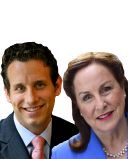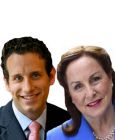
Besides bullying to look forward to each year in school, LGBT kids can also expect to be excluded from sex education classes. Those classes should do more than teach "birds and bees." Studies inform us that kids are having sex younger and younger. Today, by middle school, some children, including LGBT kids, are having sex and need to know more than just the mechanics. How about how to have safe sex? Or how to use a condom, even if they practice on a banana? Or the diseases one can catch if they have risky sex?
What good does it do to preach "abstinence only" in classes for kids who are curious about sex and want answers now, not when they are married? Must they rely on the internet or misinformation from their peers for sexual knowledge?
Sex Ed Is Not Keeping Up With The Times
Modern sex ed, if it even exists, has not even begun to reckon with that kids are now exposed to, in-person and online. They already see hypersexualized content on TV after school, for example.
And while many kids say they listen to their parents more than anyone when it comes to sex, most parents are uncomfortable talking to their kids about safe sex, mores, particularly if their child is LGBT. Some feel they are unqualified to speak about what they consider non-traditional sex. But how can you expect tweens or teens to practice safe sex if they don't know what is at risk?
When I found out my son was gay, I espoused safe sex to him, but was remiss with discussions about appropriate relationships, respect, and sexual practices. Mea culpa. I couldn't leave the remainder to his high school that had a GSA (Gay-Straight Alliance), but an inferior sex ed. class that gave the kids books like Bobby Grows Up. I know my son was not the only gay teen in that high school.
The sex ed. was not only out of date, but it omitted any mention of LGBT orientation. This is not unusual. The vast majority of states, jurisdictions and districts do not provide LGBT-inclusive sex ed, especially in public schools. "It is as if that population didn't exist," says Jonathan Tobkes, M.D. "Based on their own adolescent population and what they know about their schools, the New York City private schools are generally doing a nice job of covering sexual orientation and corresponding homosexual practices and precautions." This is not typical in other areas. "Most sex ed classes can only talk about LGBT sexuality as a morally incorrect approach or as a risk factor for acquiring HIV," says Dr. Michael Newcomb of Northwestern University's Institute for Sexual and Gender Minority Health and Wellbeing.
According to the Centers for Disease Control, many sex ed classes presume that anal sex is only for gay males, but in "Sexual Behavior, Sexual Attraction and Sexual Identity in the United States," a report based on a survey of thousands of people between the ages of 15 and 44 from 2006 through 2008, 44 percent of straight men, and 36 percent of straight women, admitted to having had anal sex at least once in their lives.
However, if you're taught in your sex ed class that everyone has only heteronormative sex, you would feel even more isolated, and possibly freakish. To be diverse, fair and equal, all kids need to be included in a school's sexual agenda.
Knowledge is power. Educating kids about their bodies and minds is not going to encourage them to have sex. Quite the contrary. Have credentialed teachers answer their questions without embarrassment and address any misconceptions the students might have.
Parents should demand inclusive sex ed classes if for no other reason than so their LGBTQ kids can feel respected by their schools.

